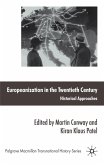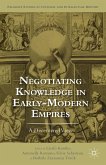An accessible textbook that summarizes the results of the intensive research of the past couple of years and provides a gateway to information on the various analytical dimensions and national differences of the protest movements . . . With its comprehensive coverage of a broad range of European countries, its analytical focus on transnational connections and the clear and accessible structure of the individual chapters, this book will be core reading for everyone who wants to study contexts, events and the impact of the revolt of 1968. - The Sixties: A Journal of History, Politics and Culture Klimke and Scharloth's contribution has good reasons to stand out from the rest. The first and maybe foremost reason is their ability to facilitate new insights into 'the long 1960s' on the European continent, thus showing us how far we are from exhausting the issue . . . a superb book, both for non-specialists who want to know about contentious politics in 1960s Europe and researchers of the subject." - International Review of Social History "The handbook is particularly interesting for those looking for a quick introduction to the topic or an overview of the most important events." - Sehepunkte " 1968 in Europe offers an insightful and provocative overview for this turning point in the history of the continent. The book is transnational history at its best - an account of the ideological, social, and political forces across European societies that shook traditional authority structures. The book is also good national history - narrating the key events and transformations in nearly every European society. Scholars and students of postwar Europe will find this book invaluable as a foundational text. It tells the pan-European story of 1968 and opens many new avenues for future research." - Jeremi Suri, author of Power and Protest: Global Revolution and the Rise of Détente "This book is a courageous effort to contribute to a new trend in the history of 1968, the study of the transnational aspects of the protest movements. It offers some basis for a comparative history in European perspective, a Europe that embraces both its Western and Eastern parts, while recognising the striking differences between the two and the specificity of national issues. Many national cases are examined, but also transnational movements such as the women's movement and its problematic link to 1968. Thus the dimension of a truly European 1968 emerges against a global background." - Luisa Passerini (Turin/Florence), author of Autobiography of a Generation: Italy, 1968
Bitte wählen Sie Ihr Anliegen aus.
Rechnungen
Retourenschein anfordern
Bestellstatus
Storno








